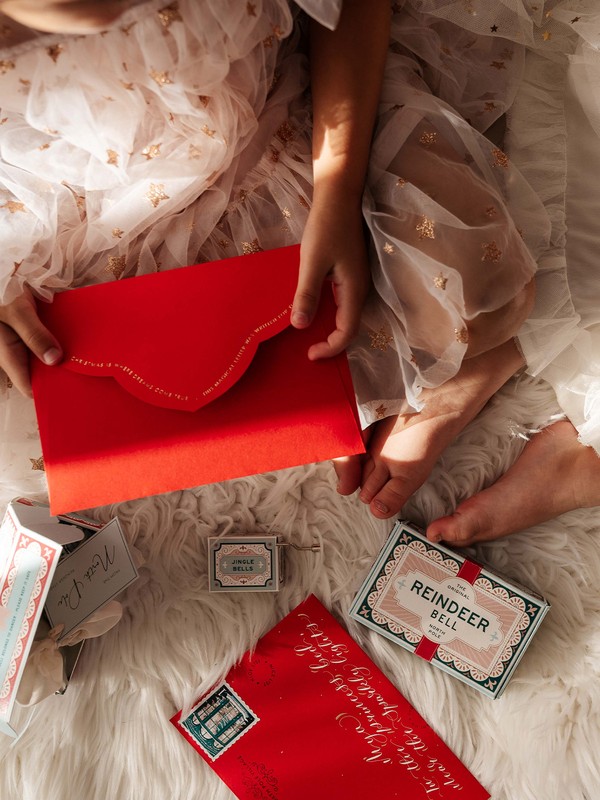How To Finally Write Your Novel
On Getting Started…
“The most important thing I’ve learned about writing is that if you want to be a writer, you have to write. Don’t wait for inspiration to hit, or for circumstances to be perfect: just write. Make yourself sit down and commit to writing for ten minutes. The ten minutes will grow to 20, to 30, and look, you’re writing! And try not to spend too long on your opening sentence. Write anything to work your way into the piece. You can always go back and change your beginning: in fact, you probably will anyway, so the faster you can get going, the better.” – Jacqueline O’Mahony, author of A River in the Trees (released 8th January 2019, published by Quercus)
“The beauty of writing your first novel is that there's no pressure on it. Just write exactly the book you want to write without worrying if it's good enough to be published, or about finishing within a certain time frame, or even if it's hugely original. The most important thing is finishing. Once you've managed that massive achievement, you can worry about making the book better, or taking what you've learned (and you'll learn a lot) onto writing the next.” – David Owen, author of All The Lonely People (released 10th January 2019, published by Atom)
On What To Write About…
“You must truly love what you’re writing, which means being a little bit in love with the characters, where they are, and what they are doing. If you have that passion, it will shine through. Also, don't get too obsessed with what’s popular at that moment. Write a story YOU believe in, not one that’s a slavish copy of what else is out there. For me, I think the key is authenticity; if you write with heart, your work will always ring true. Cynicism and imitation will never be satisfying.” – Veronica Henry, author of Christmas at the Beach Hut (released 14th November 2018, published by Orion).
“Write what you want to write, and don't worry about any current publishing trends. From beginning to write a novel to submitting it is likely to take at least a year, and even longer to publication, by which time any trend will have long since passed. Write the idea that you feel passionate about, that has the characters you love, that leaves you itching to get back to it. That's your best chance of actually finishing it.” – David Owen
On Fitting Writing Into Your Schedule…
“Be strict with yourself in carving out your writing time and make it clear to those around you how important it is not to be interrupted. And remember, it's difficult to fully immerse yourself in the complexity of a novel if you are doing it in short bursts. It might help to book some time away from work and/or family so you can get really entrenched in the plot and the characters without being distracted. Even 48 hours away with just you and the keyboard can be invaluable – you’ll get so much done!” – Veronica Henry
“It's always going to be difficult. My advice is to find whatever works for you, and do your best to stick to it until it becomes habit. You don't have to write every day, and each session doesn't even have to be terribly long, but if you can stick to a regular writing schedule – whether that be early mornings, nights, or lunch breaks – you'll be surprised how much you can get done. And if you're getting tired, take a break for as long as you need. There's no value in burning yourself out completely – it’s about striking a balance between being disciplined and knowing your limits.” – David Owen
On Honing Your Craft…
“Half of writing is rewriting. Think of a sentence as a kind of scaffold that you create to get your ideas out. Once the scaffold is up, once you’ve given expression to the idea, you can refine and rework the sentence. The form and content should be working together, and feed into each other.” – Jacqueline O’Mahony
“There are hundreds of websites and books on how to plot. You can study the theory ad infinitum, but the best way to learn is to read. Read, read, read. You should be able to absorb the rules; the rhythm of storytelling. Ask questions as you go: why do I empathise with this character? Why do I care? How is the author making me turn the page? Remember writing is a bit like cooking – you can read all the recipes in the world, but until you get your hands dirty, get cracking those eggs, making mistakes and having another go, you won't really learn or improve.” – Veronica Henry
“Read a lot. You can learn so much from reading novels – particularly those in the genre you want to write yourself – with a slightly critical eye. Pay attention to how the plot is structured, how the story is paced, how character motivations are revealed and influence the action. There really are only so many ways of telling a story, and getting familiar with them will help loads when it comes to writing your own. Many authors also offer insight into their processes: a few of my favourites are Susan Dennard, who has a heap of advice on her website, Lauren James, who writes awesome YA sci-fi, and Chuck Wendig, who runs Terrible Minds, which is packed with writing advice.” – David Owen
On Creative Writing Courses…
“I'm quite conflicted about writing courses. Sometimes they can be just what a new writer needs to give them impetus and confidence, but if you pick the wrong course they can be dispiriting, or just a platform for other aspiring novelists' egos! There are some excellent courses at Arvon, and the Faber and Curtis Brown Academies are well-respected and have some very successful alumni. Writing retreats can also be useful – especially if they’re led by an experienced writer who can give you some guidance or encouragement.” – Veronica Henry
“They can be hugely valuable – having other writers who are at your general level of ability to workshop with will expose you to different styles and approaches, and help you hone your own voice – but are my no means essential. There are countless successful writers who never took any kind of course. Ultimately, nothing is more effective for improving your writing than practicing. Writing courses offer great structure for that, but you can also do it without.” – David Owen
On Curing Writer’s Block…
“Read! When you’re not writing, read, and learn from what you read. If you don’t love reading, you probably shouldn’t be a writer.” – Jacqueline O’Mahony
“There’s a scientific link between walking and creativity – the mind allows itself to unravel in a way that it doesn't when you are sitting at the laptop. I always find that going for a walk helps – I’ll often come back with an exciting twist or a new way of looking at the plot. Or have a nap – the unconscious mind can do a lot of work for you!” – Veronica Henry
“I'm a believer in writing through writer’s block. That might sound like a contradiction in terms, but even if you're feeling stuck or uninspired, you can always write something. Write the next chapter anyway – even if it comes out terribly, it's better than having a blank page, and it gives you something to work on.” – David Owen
On Staying Motivated…
“If you really want to write a novel, you’ll do it. If you don’t, you won’t. People have done all kinds of impossible things, under extraordinary circumstances. You might be tired from being up all night with a baby, or poor, or driven half mad by sadness – don’t let anything stop you from writing. Write your way out of your life. Think of it as a tool to make your life better. If you want to write, don’t be the person who gets to the end of their life and thinks, I wanted to be a writer, but I never did it, I let it get away from me. This is the best chance you will ever have. Just write.” – Jacqueline O’Mahony
“Remember, the most important thing is finishing. Once you've managed that massive achievement, you can worry about making the book better, or taking what you've learned (and you'll learn a lot) onto writing the next.” – David Owen
On The Editing Process…
“Once you’ve finished your novel, step away from it for a while, then go back and polish it. A little time to breathe is a luxury you might never have again! Having said that, it's also good to know when to stop fiddling – something that painters have to learn.” – Veronica Henry
“Before you start editing, let your novel sit in a drawer for at least a month. Don't look at it! Then come back to it with fresh eyes and do another pass. Chances are you'll notice things or have ideas you didn't before. Once you're confident it's as good as you're going to get it without help, you might consider showing it to trusted friends or family, or even paying for professional editorial advice. This is all in service of making sure the manuscript is the best it can be before you submit it to agents.” – David Owen
On Getting Published…
“Firstly, always submit a finished novel – not a half-written one. This shows you have stamina and endurance, and that your story works. It's relatively easy to write a sparkling three opening chapters, but keeping the story going thereafter is the challenge. A potential publisher will want to be confident that you can finish; that you are not just style over substance.” – Veronica Henry
“A novel often only has one shot with each agent you submit to, so it's important to get it right. Firstly, you need to target agents who represent the genre/age group your book is written for. Get yourself a copy of the latest edition of the Writers' & Artists' Yearbook and treat it like your publishing bible. Cross-reference with agent websites, and make sure you follow submissions criteria to the letter. Agents get an incredible number of submissions every week, and will take any excuse not to read yours. You also need to write an effective cover letter (there's loads of advice online for how to do this). After that, send it all off and hope for the best!” – David Owen
DISCLAIMER: We endeavour to always credit the correct original source of every image we use. If you think a credit may be incorrect, please contact us at info@sheerluxe.com.






